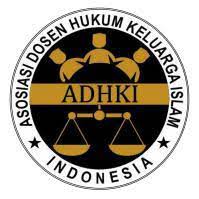Transformasi Mahar Perkawinan Melalui Estetika di Desa Paberasan Kabupaten Sumenep
DOI:
https://doi.org/10.15642/alhukama.2021.11.2.140-166Keywords:
dowry, aesthetics, Islamic lawAbstract
One of the essential parts of marriage is the dowry that must be given from the prospective husband to the future wife. Dowry is not included in the pillars of marriage but needs to be delivered to respect the existence of women. This study aims to determine whether the dowry with an aesthetic concept can be affordable? To what extent is the aesthetic limit in the dowry? The research method used in this study is a mixture of library research and field research. In addition to using literature such as books, notes, and several previous studies, this study also collected data through interviews. Giving dowry by carrying out the aesthetic concept, namely using the date of marriage, no prohibition is found. As long as the dowry is affordable and the husband can give it, then it may be done, of course, with due observance, that the dowry does not conflict with the Shari'a. In aesthetics, there are five values, as described by Laurie Schneider Adams, namely: material values, intrinsic values, religious values, nationalism values, and psychological values. The most dominating value in this study is the psychological value because it can bring a reaction of happiness and pleasure to the subject. In the view of psychology, happiness can be created by oneself, and everyone has their parameters for creating happiness for themselves. Aesthetics in this dowry can give value and satisfaction to the subject because it contains beauty.
Downloads
References
Agung, Lingga. Pengantar Sejarah dan Konsep Estetika. Yogyakarta: PT. Kanisius, 2017.
Aini, Noryamin. “Tradisi Mahar di Ranah Lokalitas Umat Islam: Mahar dan Struktur Sosial di Masyarakat Muslim Indonesia”, Jurnal Ahkam. Vol. XIV. No. 1. Januari, 2014.
Az-Zuhaili, Wahbah. Fiqih Islam Wa Adillatuhu. Jakarta: Gema Insani, 2010.
Barkah, Qodariah. “Kedudukan dan Jumlah Mahar di Negara Muslim”. Jurnal Ahkam. Vol. XIV. No. 2. Juli, 2014.
Darmawan. Eksistensi Mahar dan Walimah. Surabaya: Avisa, 2011.
Fitri, Abd. Basit Misbachul. “Eksistensi Mahar Pernikahan dalam Islam”. Jurnal Usratuna. Vol. 2. No. 1. Desember, 2018.
Franken, R.E. Human Motivation. Belmont: Wadsworth, 2002.
Hamid, Muhammad Muhyiddin Abdul. Al-Aḥwāl Al-Syakhsiyyah Fi Sharī’atil Islamiyyah. Cetakan Pertama. Mesir: Maktabah at-Tijariyyah, 1942 M.
Hasan, Mustofa. Pengantar Hukum Keluarga, bandung: CV. Pustaka Setia, 2011.
Kementerian Agama RI. Al-Qur’an dan terjemahnya. Bandung: PT. Syamil Media Utama, 2005.
Mahmood, Tahir. Family Law Reform in The Muslim World. Bombay: N.M Tripathi PVT, 1970.
Mudzhar, M. Atho. “Hukum Keluarga di Pakistan (antara Islamisasi dan tekanan adat)”, Al-‘Adalah. Vol. XII. No. 1 Juni, 2014.
Myers, D.G. Exploring Social Psychology. New Jersey: McGraw-Hill, Inc, 1994.
Nasiri, “Perkawinan di Maroko”, Jurnal Pendidikan dan Pranata Islam. Vol. 8. No. 1. Maret, 2017.
Nasution, Khoirudin. Hukum Perkawinan I, dilengkapi perbandingan UU Negara Muslim Kontemporer. Yogyakarta: Academia & Tazzafa, 2005.
Nawawi (al), Abu Zakariyah Muhyidin Yahya bin Syaraf. Raudatu al-Ṭālibīn 3. Beirūt: AL-Maktab Al-Ismaly, 1991.
Nuruddin, Amiur dan Azhari Akmal Tarigan. Hukum Perdata Islam di Indonesia. Jakarta: Kencana Prenada Media Group, 2016.
Sabiq, As-Sayyid. Fiqh As-Sunnah Juz VII. Al-Kuwait: Dār Al-Bayan, t.t.
Saidah, Nurul Lailatus. “Analisis Hukum Islam Terhadap Pemberian Jumlah Mahar yang Disesuaikan dengan Waktu Pelaksanaan Pernikahan (Studi Kasus KUA Karangpilang Surabaya)” (Skripsi--UIN Sunan Ampel, Surabaya, 2018).
Seligman, Martin. Authentic Happines: Using The New Positive Psychology to Realize Your Potential For Lasting Fulfi Ilment. Terj. Eva Yulia Nukman. Bandung: PT. Mizan Pustaka, 2005.
Shobirin, Muhammad. Studi Komparasi Penerapan Mahar di Indonesia dan Malaysia, Tesis: UIN Maulana Malik Ibrahim Malang, 2013.
Sugiyono, Metode Penelitian Kombinasi (Mixed Methods), Bandung: Penerbit Alfabet, 2015.
Sulaiman, Abu Daud. Sunan Abu Daud. Beirut: Darul Kutub al-Ilmiyah, t.t.
Syamsuddiin, Imam Nur, Lailatul Widyawati, M Ainur Rosidi, M Dhiyaulhap, Nova Riskiyana Setiyahani. “Analisis Maslahah Mursalah Terhadap Pendapat Penghulu KUA Wonocolo Surabaya Tentang Nilai Mahar”. Journal of Islamic Family Law. Vol. 09. No. 02. Desember, 2019.
Winario, Mohd. “Standarisasi Mahar Perspektif Maqashid Syariah” (Disertasi--UIN SUSKA, Riau, 2020).
Departemen Agama RI. Al-Qur’an & Terjemahannya. Jakarta: Kathoda, 2005.
Vera, Ayu. Wawancara. Sumenep, 19 mei 2021.
Jannah, Wardatul. Wawancara. Sumenep, 19 mei 2021.
Noviana. Wawancara. Sumenep, 08 April 2021.
Downloads
Published
How to Cite
Issue
Section
License
Copyright (c) 2022 Al-Hukama' : The Indonesian Journal of Islamic Family Law

This work is licensed under a Creative Commons Attribution-NonCommercial 4.0 International License.
Licensing
© The Author(s). Published by Prodi Hukum Keluarga Islam Fakultas Syariah Dan Hukum Uin Sunan Ampel Surabaya, Indonesia.
This is an Open Access article distributed under the terms of Attribution-NonCommercial 4.0 International (CC BY-NC 4.0).








